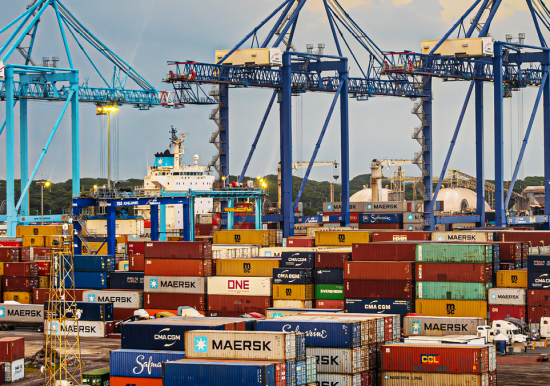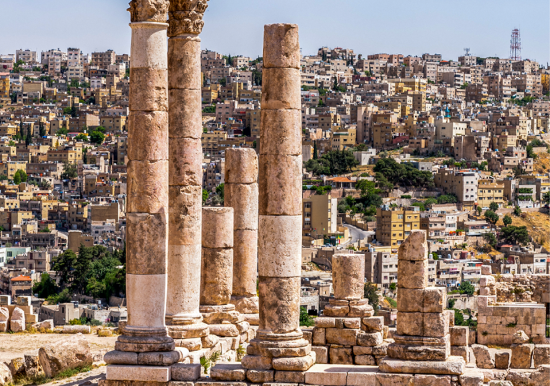
Botswana: Leading Financial Stewardship in Africa
Financial Stewardship Matters in Governance
How a government manages public resources shapes the trajectory of a nation’s economy, the well-being of its people, and its overall prosperity. A country’s financial means determines its overall ability to provide services, maintain systems, build infrastructure, and invest in the future.
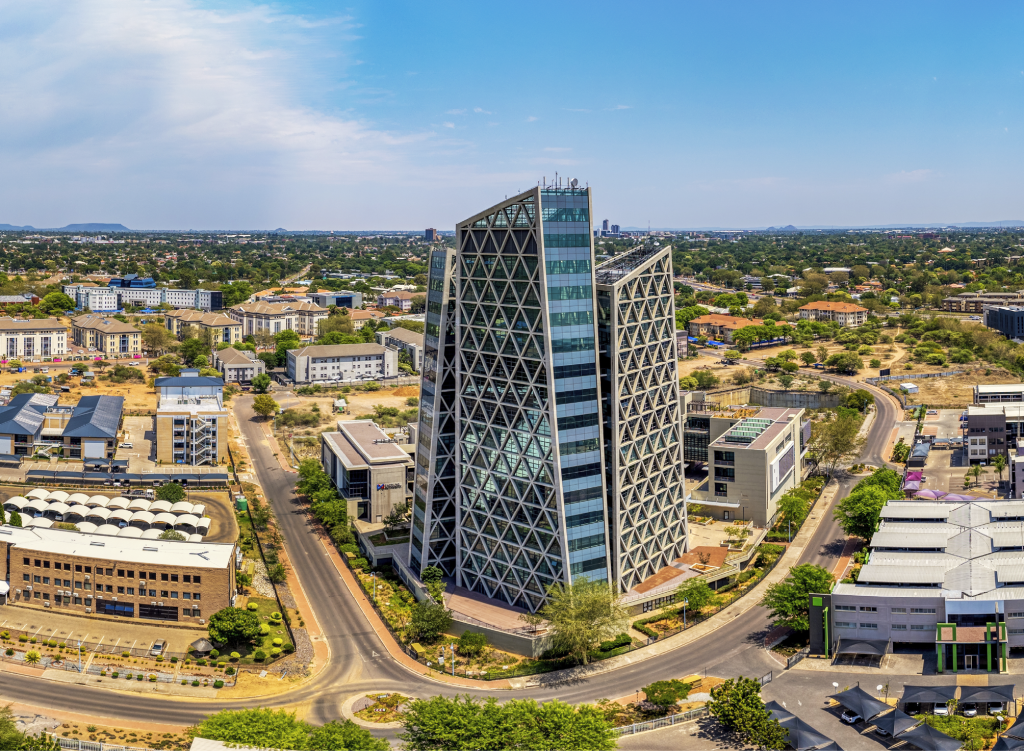
The quality of a government’s Financial Stewardship also informs its standing and credibility in the global competition for talent and capital. Imprudent financial management is punished by the marketplace.
Countries with poor financial stewardship face high inflation, currency devaluation, and higher costs of borrowing for both businesses and government.1
It is for these sobering reasons that Financial Stewardship is one of the CGGI’s seven key pillars of good government. It consists of four indicators: Government Debt, Country Budget Surplus, Spending Efficiency, and Country Risk Premium.
Botswana, whose performance stands out compared to its regional peers, offers lessons in its approach to this important aspect of governance.
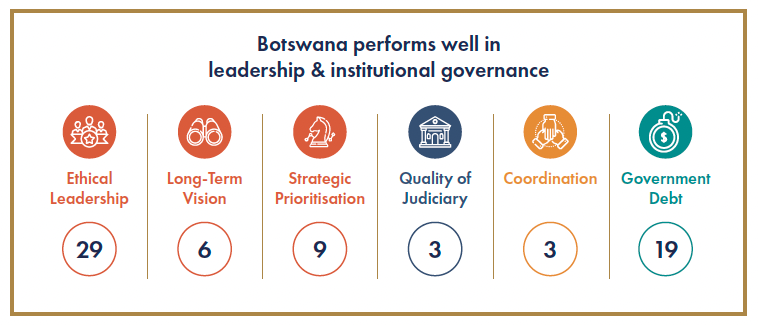
Botswana’s Performance in the CGGI 2024
Botswana is the leading CGGI performer in Africa for Financial Stewardship (31st overall). This strong performance has contributed to Botswana climbing 12 spots in the overall CGGI rankings, from 65th in 2023 to 53rd in 2024—making it the highest-ranked country in continental Africa.
Among the indicators in the Financial Stewardship pillar, Botswana’s performance in Government Debt stands out. It ranks 19th globally for this indicator— just behind Ireland and ahead of South Korea.
Botswana also ranks 29th in the Ethical Leadership indicator—the highest ranking in all of Africa. While this indicator is not part of the Financial Stewardship pillar, it speaks to the integrity and credibility of Botswana’s leaders in managing the country’s resources, including public finances. Significantly, Botswana also stands out in important leadership and institutional aspects of governance: it is in the global top ten for Long-Term Vision (6th), Strategic Prioritisation (9th), Quality of Judiciary (3rd), and Coordination (3rd).
WHAT MIGHT BE BEHIND BOTSWANA’S STRONG PERFORMANCE?
A Heritage of Prudent Governance
A country’s past does not dictate its future, but it can help offer a better understanding of where it is today. From 1966, when it became independent, to the beginning of the 21st century, no country saw higher per-capita income growth than Botswana.2 Since the outbreak of the COVID-19 pandemic, Botswana has faced challenges familiar to many countries: slower growth, higher inflation, and supply-chain issues. Yet it has outperformed its peers economically.

What has driven Botswana’s success? Different observers have pointed to the same factors: the country’s substantial mining revenues coupled with good governance, prudent fiscal policy, and sound institutions.3 4 5 Despite being abundant in valuable minerals, the country has managed to avoid the resource curse that has plagued many other resource-rich economies.6 7 The World Bank has also lauded the country for its respect for property rights and the rule of law, and for its consultative approach to governing, which has engendered trust.8
Botswana Clearly Outperforms Regional Peers in Managing Government Debt
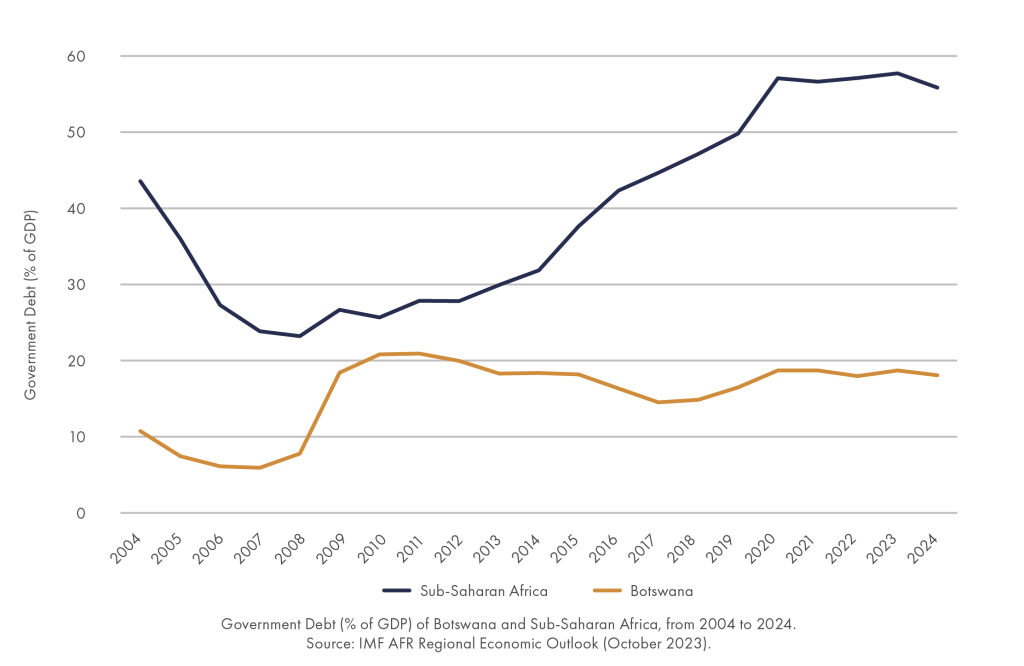
As shown in the chart above, from 2004 to 2024, despite challenges such as the 2007 economic crisis and the COVID-19 pandemic, Botswana consistently maintained its government debt-to-GDP ratio below 20%9. In contrast, by 2020, the government debt-to-GDP ratio in the Sub-Saharan region had almost reached 60%.
For almost every year between 1980 and 2021, Botswana’s current account balance remained largely positive, often hovering around 10% of GDP. This stability attracted foreign investments, fostering economic growth and development.
Fiscal Leadership
Peggy Serame, Botswana’s Minister of Finance since 2021,10 has overseen substantial infrastructure investments, initiatives to attract foreign investment, and efforts to drive export-led growth.
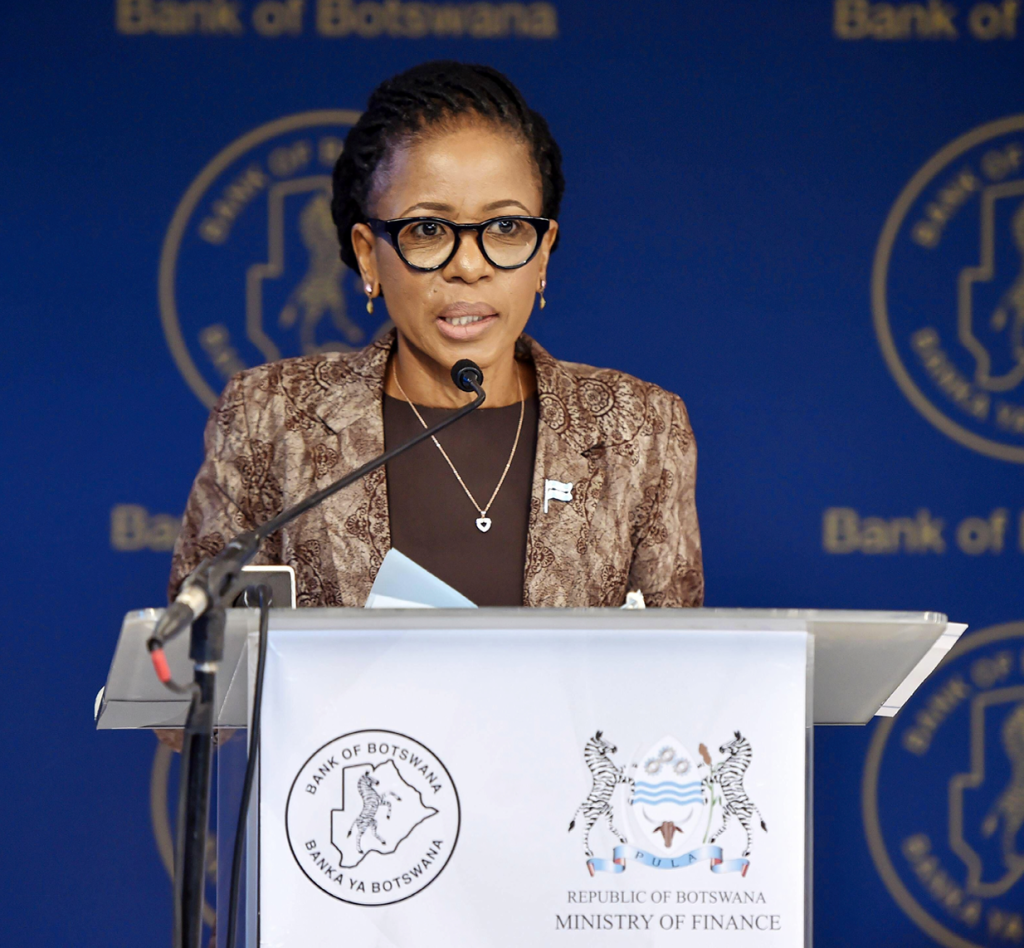
She has also presided over recent marketplace reforms to improve Botswana’s financial operating environment. These include amending the Transfer Duty Act to lower some transfer duties for noncitizens, implementing a new Code of Corporate Governance for state-owned enterprises to further improve transparency and accountability,11 as well as a full review of the Public Finance Management Act, which regulates how Botswana’s government uses public resources.
Promoting Efficiency and Savings in Public Expenditure
Improving the efficiency of public expenditure is a priority for Botswana. A Public Investment Management Assessment in 2022 reduced an ”efficiency gap” from 37% to 31%, with the Finance Ministry looking to decrease it further in the years to come.12 The Finance Minister has also announced plans to implement Zero-Based Budgeting (ZBB)—a method of budgeting in which every expense has to be justified and approved before funding is allocated—to find efficiencies in the operational expenses of Ministries, Departments, and Agencies— which collectively make up more than 70% of the government’s total budget.13 Research conducted in the private sector suggests ZBB can reduce general and administrative costs by 10% to 25%.14
A Trustworthy Financial Regime & Business Environment
Botswana has invested in improving the country’s Risk Premium and built public trust in its financial system and market institutions. In 2022, Botswana launched its second National Risk Assessment on money laundering and terrorism financing. The country’s Financial Intelligence Agency, which drives such national assessments and works to prevent and punish financial crimes, contributed to legislative changes that led to the country’s removal from the Financial Action Task Force’s ”grey list” in 2021.15 The International Monetary Fund (IMF) has praised Botswana for its notable progress in strengthening its financial supervisory and regulatory frameworks in recent decades.16
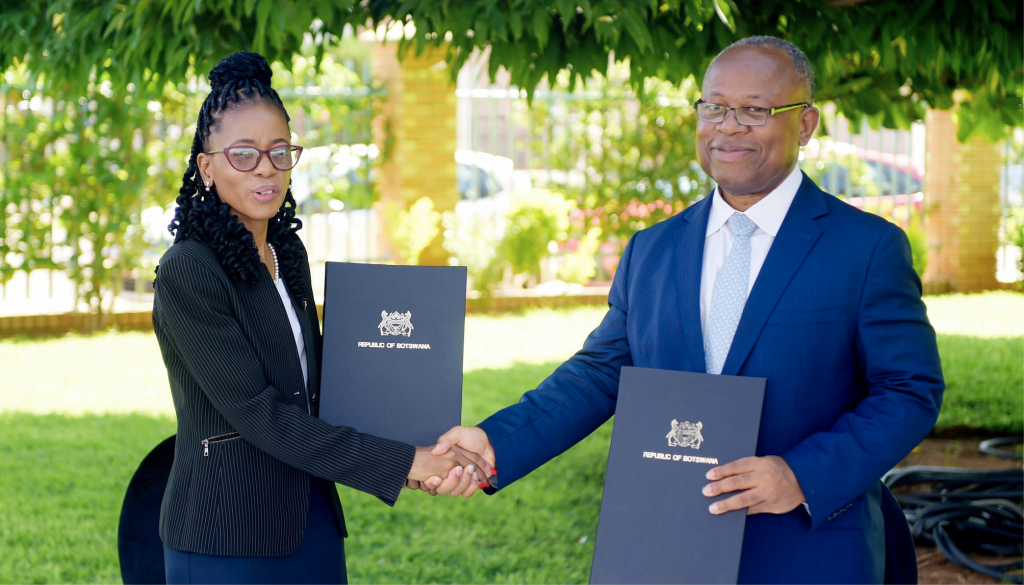
In 2023, Botswana was ranked among the safest countries in Africa to do business,17 while its capital, Gaborone, was ranked as one of the continent’s top-ten hubs for producing entrepreneurs.18
Future-orientation: ”Transformation Now and Prosperity Tomorrow”
The theme of Botswana’s second Transitional National Development Plan, which runs until March 2025, is ”Towards a High-Income Economy: Transformation Now and Prosperity Tomorrow”.19 Financial and resource stewardship plays a critical role in this national vision. One of the foremost goals of this development strategy is Botswana’s ongoing effort to diversify its economy to become more resilient, sustainable, and broader based. In her February 2024 speech to present the 2024/25 budget, Minister Serame highlighted the risks of being too reliant on the diamond sector for public revenues. She acknowledged the strain of the COVID-19 induced economic lull and thanked Botswanans for their ”patience and understanding during the difficult process of restoring our economy to its sustainable path”.

Botswana faces considerable challenges—along with many countries in the region—as it endeavours to restore its economy to sustainable growth. Economic diversification will take years to bear fruit,20 and unemployment remains a pressing issue among the young.21 But with targeted investments in non-mining sectors such as agriculture, manufacturing, renewable energy, green tech, and tourism, Botswana is realistic about its prospects and growth potential.22
Endnotes
- Economic Governance and EMU Scrutiny Unit (EGOV). (2023, June). The effects of high inflation and monetary tightening on the real economy. https://www.europarl.europa.eu/RegData/etudes/STUD/2023/741495/IPOL_STU(2023)741495_EN.pdf
- Lewis, S. R. (2020, June 18). Explaining Botswana’s Success: The Importance of Culture. Speeches & Papers hosted by Carleton College.
- IMF, African Department. (2023, August 31). Botswana: 2023 Article IV Consultation-Press Release; Staff Report; and Statement by the Executive Director for Botswana.
- Botswana. World Bank. (n.d.). https://www.worldbank.org/en/country/Botswana
- Acemoğlu, D., Johnson, S., & Robinson, J. A. (2001). An African success story: Botswana. Social Science Research Network. https://doi.org/10.2139/ssrn.290791
- Sebudubudu, D., & Mooketsane, K. (2016). Why Botswana is a Deviant Case to the Natural Resource Curse. The African Review: a Journal of African Politics, Development and International Affairs, 43(2), 84–96.
- Iimi, A. (2006). Did Botswana escape from the resource curse? IMF Working Paper, 06(138), 1.
- Lewin, M. (2011). Botswana’s Success: Good Governance, Good Policies, and Good Luck. In P. Chuhan-Pole, & M. Angwafo (Eds.), Success Stories from a Dynamic Continent, 81-90. The World Bank.
- Regional Economic Outlook for Sub-Saharan Africa, October 2023. (2023, October 16). IMF. https://www.imf.org/en/Publications/REO/SSA/Issues/2023/10/16/regional-economic-outlook-for-subsaharan-africa-october-2023
- Finance Minister of the year 2024. (2024, January 2). The Banker. https://www.thebanker.com/Finance-Minister-ofthe-Year-2024-1704191400
- Transfer Duty Amendment Act 2023. (2023, May 9). Grant Thornton Botswana.
- Serame, P. (2024, February 5). 2024 Budget Speech. Government of Botswana, Ministry of Finance. https://www.finance.gov.bw/images/DevelopmentandBudget/2024-25/2024_Budget_Speech_Final.pdf
- Reforms help budget formulation execution (2024, February 6). Botswana Daily News. https://dailynews.gov.bw/news-detail/77685
- Callaghan, S., Hawke, K., & Mignerey, C. (2014, October 1). Five myths (and realities) about zero-based budgeting. McKinsey & Company.
- Botswana’s progress in strengthening measures to tackle money laundering and terrorist financing. (2023, January 31). https://www.fatf-gafi.org/en/publications/Mutualevaluations/FUR-Botswana-2023.html
- Botswana: Financial System Stability Assessment. (2023) International Monetary Fund. https://www.imf.org/en/Publications/CR/Issues/2023/09/21/Botswana-Financial-System-Stability-Assessment-539353
- Afzal, M. (2023, October 5). Top 15 safest African countries to do business. Yahoo! Finance. https://finance.yahoo.com/news/top-15-safest-african-countries-191002208.html
- Okafor, C. (2023, December 12). Top 10 African cities with the highest number of business founders. Business Insider Africa. https://africa.businessinsider.com/local/markets/top-10-african-cities-with-the-highest-number-of-business-founders/s806qtb
- Serame, P. (2024, February 5). 2024 Budget Speech.Government of Botswana, Ministry of Finance.
- Botswana – an African economic miracle? (2020, January 28). LSE International Development. https://blogs.lse.ac.uk/internationaldevelopment/2020/01/28/botswana-an-african-economic-miracle/
- Basimanebotlhe, T. (2024, February 11). Big budgets won’t change voting minds. Mmegi Online. https://www.mmegi.bw/news/big-budgets-wont-change-voting-minds/news
- Serame, P. (2024, February 5). 2024 Budget Speech. Government of Botswana, Ministry of Finance. Also see International Monetary Fund. African Dept. (2023). Botswana: 2023 Article IV Consultation-Press Release; Staff Report; and Statement by the Executive Director for Botswana. IMF Staff Country Reports, 2023(317), A001
More Stories


Global Influence & Reputation Country Snapshot: Türkiye
